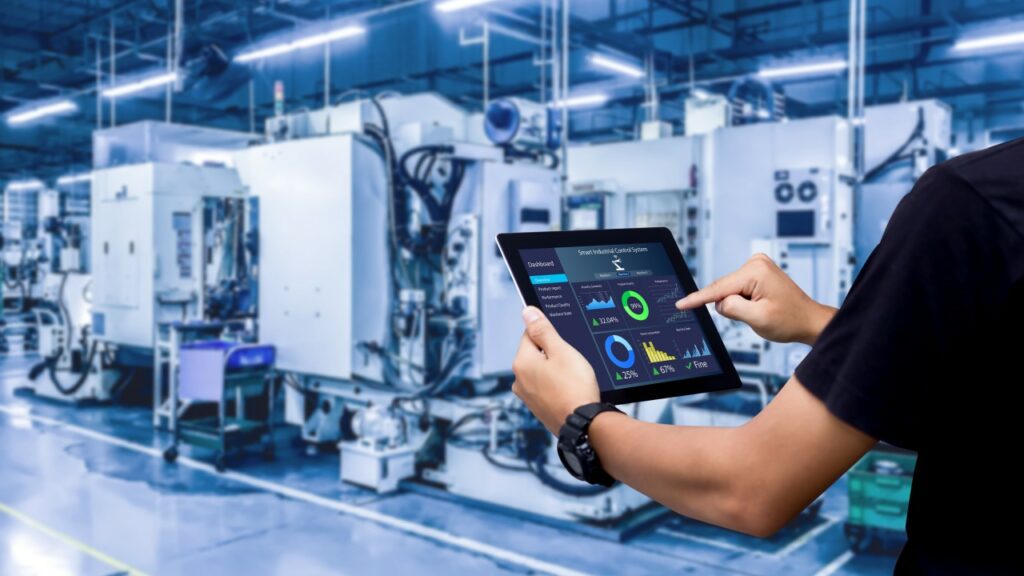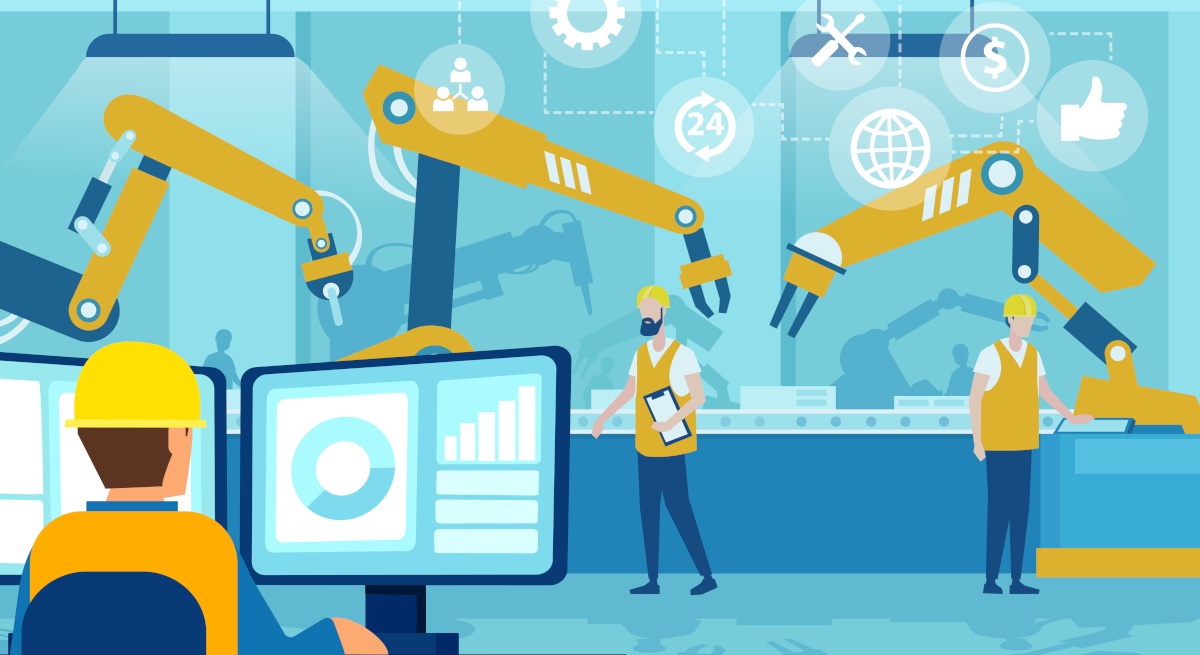Engineering has been the cornerstone of human civilization for centuries. It’s shaped the world we live in by pushing the boundaries of what we can create, but the leaps made in artificial intelligence and automation have us questioning whether we need engineers in the first place. Automation has already taken over a myriad of industries that range from healthcare to manufacturing. We may see an increase in robotic manufacturing and assistive tools, but engineers won’t be obsolete. Their role has simply evolved to designing newer technologies using automation as a tool and creating more effective automation strategies in the first place.
Table of Contents
What is Automation Engineering?
We may have discovered automation, but we need automation engineers to improve our application of the discovery. They plan, develop, and implement systems that need as little human input as possible to maximize efficiency and accuracy. It began on the manufacturing floor with machines that remove defective products. As technology improved, the factory floor experienced an increasing level of automation.
Remember the machine that screwed on the caps of toothpaste tubes in Charlie and the Chocolate Factory? Expand that to car manufacturers that have automated every step of the process. This is not to be mistaken as a purely mechanical or electrical engineering field—software engineers have made gigantic strides in creating automatic solutions. The bottom line is reducing errors in mundane, repetitive tasks that human beings inevitably make mistakes in by replacing them with machines that never lose concentration. We’re already knee-deep in automation, getting ready to dive headfirst into a world that doesn’t need people to function.
How Does Automation Shape Today’s World?
If automation and robots scare you, take heart in the fact that most industries in the world are already automated to some degree. Complete automation has been restricted by the technology of our time, but we’ve managed to delegate some of our processes to machines.
Logistics
Customer service, delivery, and organization have become gargantuan industries that are impossible to manage efficiently without machines. They already manage routes for public transportation and assist operators with schedules, with self-driving vehicles being the next major step in automated delivery.

Automation engineers are the core of any logistical process that improves efficiency. Machines that they design are used to map out the most fuel-efficient traffic routes, organize storage warehouses, and complete automatic registration.
Agriculture
The truth is that we need these machines to keep up with human needs. Our first deep dive into automation was in the agricultural industry to meet food demands. Genetic engineering lets us create high-yielding seeds, and machines let us harvest that food on time. We hadn’t coined the term ‘automation engineer’ at the time, but under the current definitions, modern agriculture is almost entirely automated: machines do the plowing, planting, maintenance, and harvesting with one or two humans on hand to operate the machinery. It shouldn’t be long before we see completely autonomous farming machines like the ones in Interstellar!
Manufacturing
The factory floor has been a safety hazard since the first industrial revolution, and we’ve been scrambling to come up with regulations and technology to protect the average worker. We eventually reached the point where outfitting and insuring a team of human workers to meet safety requirements became unsustainable for businesses. Today, you can gauge the quality of a factory by how much of its processes are automated.

However, it’s an expensive process that we still haven’t been able to apply universally. Machines still need a human touch to operate to the best of their abilities, but human workers in the middle of a machine-dominated floor are another safety hazard. Automation engineers at the Scott Fetzer Electrical Group are leading the way in human-machine collaboration and have found a middle ground. They’ve created a fleet of technical robotic arms that are portable and removable at a moment’s notice. Workers have schedules printed out by the robots telling them where they need to be, and they can just be wheeled to their relevant stations.
The Future of Automation Engineering
Progress in technology is never linear. It’s always experienced exponentially because our inventions today speed up the inventions of tomorrow. With the breakthroughs we’ve made in AI and machine learning, engineers are much better equipped to make the next advancements in automation.
The Internet of Things
You’ve probably heard this phrase being thrown around the tech world, but you may not know that it’s the biggest catalyst we have for automation. Engineers have managed to link devices together through modern sensors that detect movement, temperature, light, and changes in data. This allows machines to communicate with each other about changes in their environment and respond autonomously.

Unlike many of our ventures into automation, the IoT is highly scalable. We can add new devices to the network at will or add the required sensors to old technology and prevent waste. We wouldn’t even be able to process the required amounts of data without AI and machine learning, so this isn’t something regular engineers could spearhead. As our proficiency with data integration and AI improves, automation engineers will be able to use the IoT to seamlessly integrate different kinds of machines together.
What Happens to Regular Engineers?
Robotics have been blamed for taking tens of millions of jobs ever since the Industrial Revolution, but that’s not exactly the case. We have machines to do a majority of the tasks we did ourselves 100 years ago, but it’s not like the world ran out of jobs for people. Our faculties are just directed towards newer, more advanced projects.
History teaches us that there will be a section of engineers who will lose their jobs, but they’ll have opportunities in newer ones. Robotics and AI are going to need human workers to run them, and we don’t even know the fields that will open up as automation advances. Engineers that adapt to AI in their traditional fields will be working on bigger, more pressing problems.
As the number of machines we use will increase, so will our energy consumption. We’ll need engineers to focus on more elegant solutions for our energy needs or make our existing solutions more efficient. They’ll be the spearheads against climate change, with AI and robotics assisting them in their struggle for sustainable development. In fact, you can argue this future breed of engineer will be more important than ever.
Have a vision for your business? Let us help you get started! At EvolveDash, we’re passionate about helping businesses grow and evolve in the digital world. Our team is here to help every step of the way, from developing custom mobile apps to creating personalized websites.
With a proven track record of helping over 100 satisfied customers and 450 completed projects, we’re confident we can help you achieve your goals too. Let’s turn your business vision into success!
FAQs
- What does an automation engineer do?
An automation engineer designs, develops, and maintains systems that minimize human involvement by using machines, software, and AI to complete tasks more efficiently.
- Is automation replacing engineers?
No, automation is changing their roles. Engineers now focus on designing and improving automated systems rather than performing repetitive tasks.
- What industries rely on automation engineering?
Automation engineering is used in manufacturing, logistics, agriculture, healthcare, and many other industries that benefit from efficiency and accuracy.
- How does AI affect automation engineers?
AI helps automation engineers create smarter, more adaptive systems by improving machine learning, data analysis, and decision-making capabilities.
- What is the future of automation engineering?
As technology advances, automation engineers will focus on integrating AI, IoT, and robotics, creating more sophisticated and interconnected systems.



















